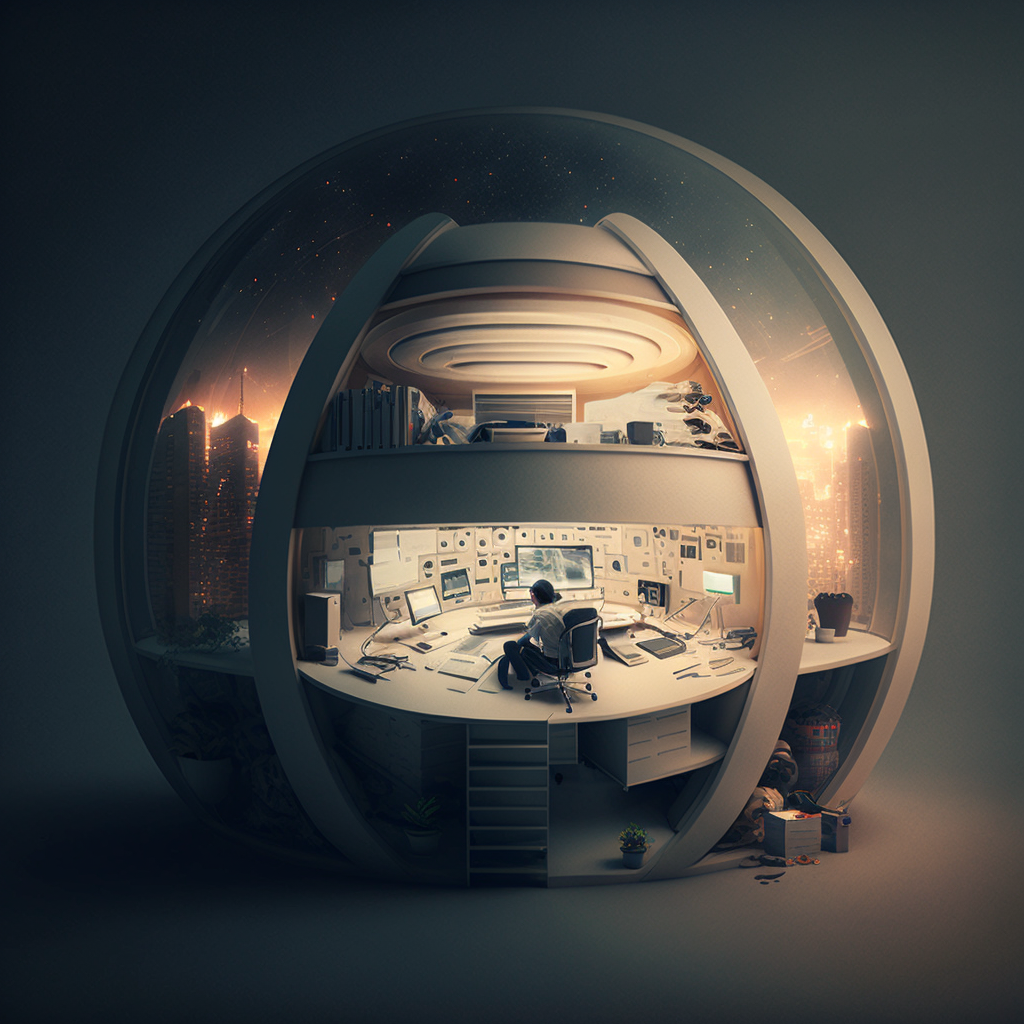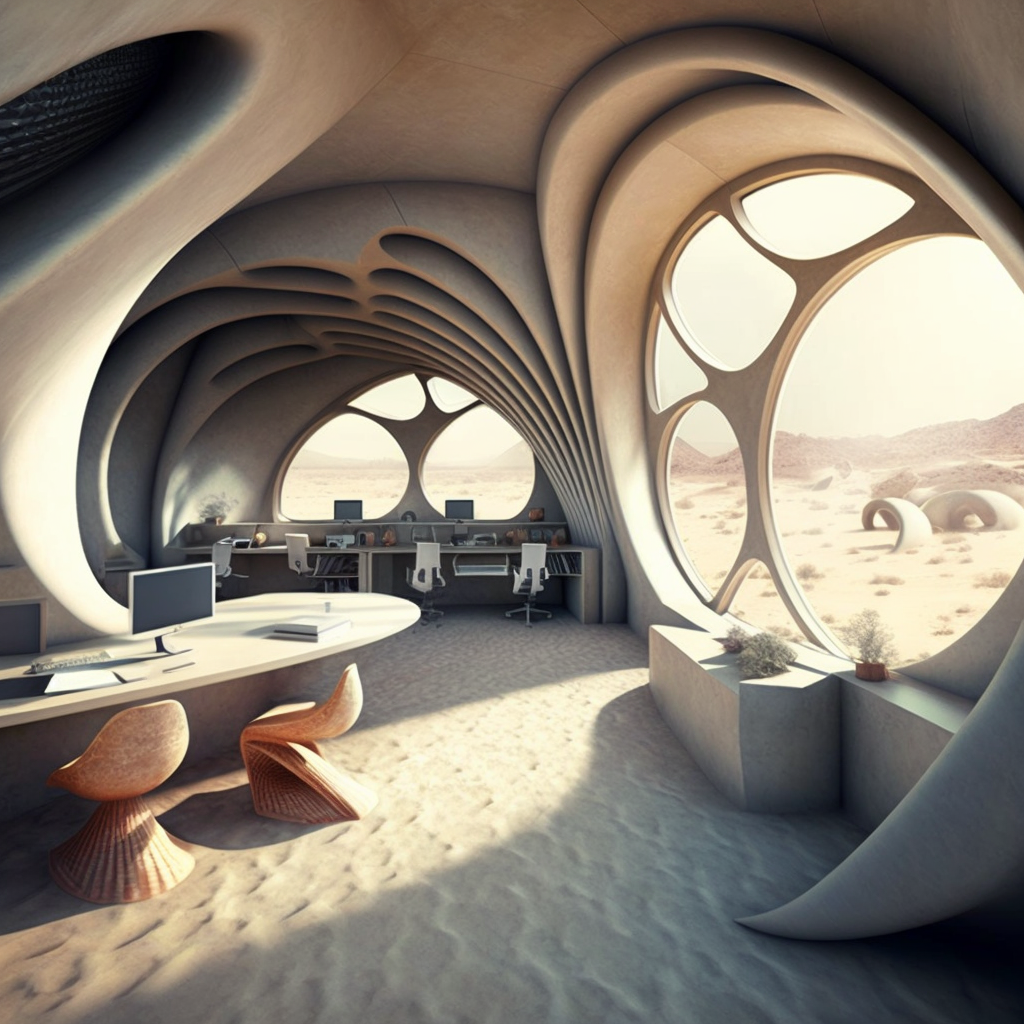As technology continues to evolve and transform the way we live, it is also having a profound impact on the way we work as well. Where offices were once endless rows of desks and cubicles, it has now transformed into a central hub where employees can come to work when not at home.
Tech-driven work areas, collaboration zones and creative hubs are all standard design features that come as a part of the modern office, and where artificial intelligence (AI) is now being introduced more regularly into our everyday operations, office design is likely to progress to a whole other level.
A report published in January 2022 found that “68% of large companies, 34% of medium sized companies and 15% of small companies have adopted at least one AI technology”. These numbers indicate how heavily AI is already involved in our business processes and shows how integral AI will likely become in the workplace in the future.
Because of AI’s future importance in transforming the workplace, it is important to anticipate how AI will shape the future of office fit out and office design too.
Our working environment and the office culture have already drastically changed in the wake of the pandemic and now, business owners are focused on creating an office design that supports employee wellbeing and encourages employee collaboration and creativity. As AI continues to advance and become more intelligent, our working environments could continue to look entirely different again.
In this article, we will discuss how artificial intelligence will transform office designs in the future and how your business can prepare for it.
An employee’s mental and physical health is now a primary focus when it comes to office design and with the integration of artificial intelligence, companies will be able to create a suitable working environment for everyone.
Though employers are on the right track when it comes to designing office spaces thar cater to their employee’s working styles and preferences, it can still be difficult to understand the needs of every individual, with only traditional ways of gathering information, such as surveys and interviews.
However, through the use of artificial intelligence and analytics, future employers will be able to quickly gather data that is bespoke to individual employees including staff behaviours, working styles and preferences. In turn, this will help to provide businesses with a more accurate view of how the office is currently being used and will inform decisions on how to optimise their working office space further.

Through applying artificial intelligence in this way, organisations will be able to use data insights to inform their future office designs and will help to create an environment that satisfies employees and improves corporate performance.

Many employees have become accustomed to working from home, and the luxuries and freedom that come with it. Because of this, staff now require engaging work experiences that offer open-plan, collaborative working to tempt them back into the office. Additionally, other office perks such a game rooms, coffee bars and relaxation zones, are all reported to improve employee satisfaction within the workplace.
As AI gradually becomes mainstream in office design, employee satisfaction will only get better. Workplace apps will give staff the power to manage their office space from their mobile device before arriving at the office – adjusting room temperature, scheduling meetings, and managing workplace events will all be a part of this transformation.
This control will allow employees to create a working environment catered to their exact needs, allowing them to put more focus on meeting deadlines and achieving their long-term goals.
In recent years, a particular focus has been put on the physical and mental health of business employees. Nowadays, organisations attempt to discourage staff from remaining seated for long periods of time, and instead encourage the free movement of staff around the office, which will result in various health benefits such as muscle retention and improved blood flow.
A standing desk is already a great example of how modern office furniture facilitates an improved office environment for employees. However, as AI becomes more prevalent in the working world, it will merge with these office tools to monitor the health and well-being of staff and encourage healthy habits, such as allotted sitting and standing times throughout the day.
As well as physical health, artificial intelligence is also expected to improve the mental wellbeing of office staff too. Bio-sensory technology is continuously improving, and offices will soon be able to monitor employee’s moods and energy levels.

Because this data will be readily available to employers, they can apply it to their future workplace strategies when looking to improve employee motivation and stress levels, and optimise their productivity.
Though artificial intelligence will inevitably become part of the office space, the design features discussed above are a few years away yet, and whilst there are an abundance of benefits to AI, it does have its downsides.
Where many office employees have spent so much time apart from one another and have been forced to interact virtually for so long, human interaction is more important than ever. It cannot be denied that artificial intelligence takes away the need for human interaction in the workplace.
Yes, AI can help you to understand your employee’s working patterns and how they navigate the office, and can also let them set up their desk space before walking through the office door. However, AI doesn’t understand why your employee’s like to work in certain ways and takes away the need for a morning office chat that we all enjoy so much.
Put simply, using artificial intelligence in your office can limit how well you get to know your employees on a personal level, and can actually enable a working culture that frowns upon relationships and socialisation.
So, if you’re considering implementing AI into your office design it’s important to consider whether you really need it, and what impact it could have on your office culture in the long run.
At Building Interiors, we are experts in office fit outs and refurbishments. Some of our other services also include:
These services allow us to create office environments that are fit for the modern working world, no matter what sector you are in.
If you’d like to speak to one of our friendly team members, you can call us on 0113 388 6522. Alternatively, you can also email us at contact@buildinginteriorsgroup.co.uk.